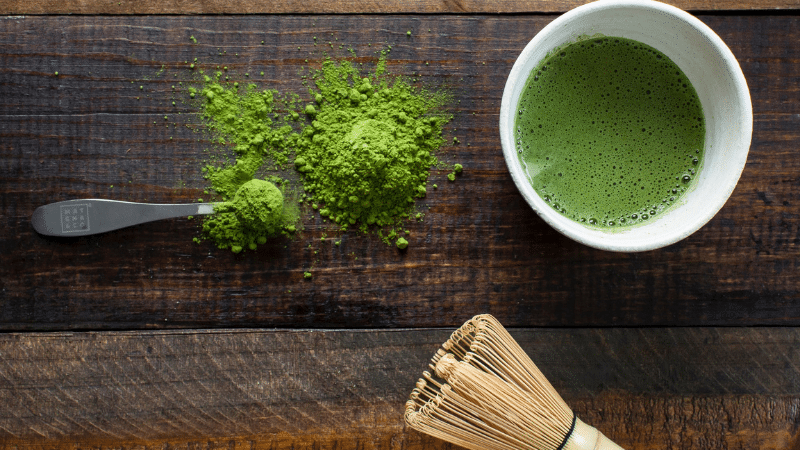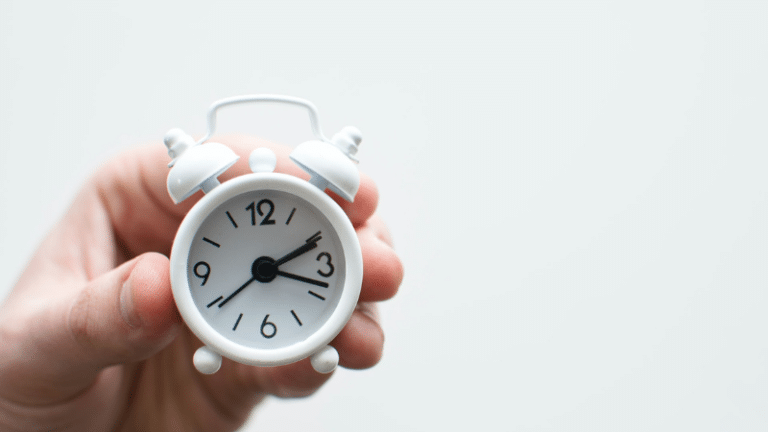Defining the Proper Green Tea Extract Dosage in 2024

Green tea has been long regarded as an overall alternative medicine marvel because a myriad of studies has shown its potential health benefits. However, defining the best green tea extract dosage can prove to be a more difficult task.
It’s not that scientific circles haven’t given us the necessary guidelines we should follow because they have. It’s more about finding the best products for your goals and aiming to stay within healthy dosage limits. As such, in this guide, we will give you an overview of optimal dosages of the extract for different purposes, so you can get a better idea of how this extraordinary blend works.
About Green Tea Extract
Before taking a look at specific green tea supplement dosage recommendations, let’s kick things off by talking a bit about green tea extract in general. First of all, green tea is among the most popular teas across the globe. Green tea extract is the tea’s concentrated form, with a capsule typically containing the same amount of the active ingredient as an average cup of the beverage would.
The extract is a perfect source of antioxidants, which have been credited with having numerous health benefits. This includes everything from improving liver, brain, heart, and skin health to reducing cancer risks, helping with muscle recovery, weight loss, and more.
Even though these claims all sound wonderful, it’s still paramount to know how to take the supplement, not to exceed the green tea extract recommended dosage, and to avoid any potential risks or complications.
Green Tea Extract and Weight Loss
If you’ve ever come across a list of premium fat burners or weight loss supplements, you’ve probably noticed that a lot of these products feature green tea extract as one of the main ingredients. When looking at scientific data gathered so far from different experiments and observations across the board, determining the best green tea extract weight loss dosage can be a problematic task.
For instance, in one study, adults took up to 56 mg of an extract with either 28 or 45 mg of caffeine, and there was no evidence that energy expenditure with this combo was higher than in the placebo group. On the other hand, an older study found that green tea extract with an added blend of catechins (EGCG), guarana extract, and caffeine did improve thermogenesis for up to 24 hours. When determining the best time to take green tea extract for weight loss, some studies suggest taking it around exercise, as it may increase fat burning up to 17%.
Also, when talking about dosages, most experts agree that the main culprit behind these thermo-boosting effects may mostly be caffeine. That being said, those who already consume around 300 mg of this substance per day (3 cups of coffee) might not be able to reap these benefits because of the caffeine tolerance they’ve built up. Overall, using the ballpark figures for a green tea extract safe dosage (250–500 mg daily) should be a great way to start, but you should always consult your doctor first.
Apart from that, relying only on supplements for weight loss is never a good idea. Regular exercise and a healthy diet, along with other lifestyle changes, are the best way to make a real difference in the long run; however, these products may help you out by giving you an edge.
Green Tea Extract for Uterine Fibroids Dosage
In one study, 39 women between the ages 18 and 50 with symptomatic uterine fibroids with lesions of 2 cm3 or larger were randomized for daily oral treatment with either 800 mg of green tea extract with 45% EGCG or an 800 mg placebo made from brown rice. They received these dosages for over four months, with the researchers measuring uterine fibroid volumes at the end of the study.
The results showed that UF volumes increased in the placebo group by 24.3%, while in the green tea extract-EGCG group, volumes showed an average reduction of 32.6%. As these are only research figures, reaching out to your doctor for more information may be the best idea if you had something similar in mind.
Green Tea Extract Dosage and Heart Health
As oxidative stress increases the buildup of fat in the blood, it can lead to artery inflammation and cause high blood pressure. The high antioxidant concentration of green extract may help prevent these issues. Additionally, the antioxidants can also contribute to the inhibition of fat absorption in the blood cells, reducing blood fat levels in the process.
In terms of dosages, in a study, the beneficial daily green tea extract effective dose was around 379 mg of the compound for three months for 56 people with high blood pressure and bodyweight problems. Compared to the placebo group, the people taking the extract showed a significant decrease in blood pressure, improved blood fat levels, and a reduction in total and bad (or LDL) cholesterol.
Another study showed that taking 250 mg of green tea extract every day throughout eight weeks can reduce LDL cholesterol by 4.5% and total cholesterol by 3.9%. Elevated blood fat levels and high blood pressure are both primary risk factors in heart problems, and regulating them with green tea extract might be beneficial and might help reduce overall heart attack stats.
Green Tea Extract Dosage and Cancer
Disrupted cell production can lead to the development of malignancies, i.e., the body’s production of dysfunctional cells that won’t die as normal cells do. Experts suggest that the antioxidants (especially EGCG) in green tea extract might have favorable effects that can contribute to proper cell function and production.
In a smaller study, participants (who were at risk of developing prostate cancer) took 600 mg of green tea extract daily. At the end of the study, the green tea group’s likelihood of developing cancer was 3%, while the control group’s likelihood was 30%,
Green Tea Extract Dosage per Day for Recovery and Athletic Performance
Green tea extract also seems to be helpful for those with a serious exercise regimen, both in terms of recovery and performance. Although regular exercise has countless benefits, it also produces oxidative stress and can cause cell damage in the body. To fight this, athletes may use green tea extract (and its antioxidants) to delay muscle fatigue and to decrease the amount of cellular damage.
In one study, 35 men seemed to have enhanced their body’s protection against oxidative stress after four weeks of daily green tea extract supplementation with 640 mg of polyphenols. Similar results were demonstrated in sprinters and distance runners. In regards to workout, another study suggests that taking 500 mg of green tea extract a day may reduce muscle damage.
Too Much Green Tea Extract
Even though green tea and its extract seem to pose no harm to humans, some people did report side effects. Exceeding the recommended daily intake of green tea extract can be a bad idea for several good reasons.
For example, a study examined the consequences of high-dosing green tea catechins (1,200 mg per day), and the participants reported several negative side effects:
- heartburn
- nausea
- dizziness
- excess intestinal gas
- abdominal pain
- headaches
- muscle pain
Constipation has also been experienced. Also, too many antioxidants may lead to polyphenol toxicity which may lead to liver damage when consuming daily EGCG doses higher than 800 mg. Caffeine itself may also lead to negative side effects, such as anxiety, elevated blood pressure, dizziness, and so on. Apart from keeping the recommended dose of green tea extract in mind, one should also know about the different interactions with medication.
For example, a study found that a daily dose of 700 ml of green tea extract may reduce the effectiveness of the beta-blocker nadolol. Also, research shows that green tea supplements might help improve the efficacy of some chemotherapy drugs while decreasing the efficacy of others.
During breastfeeding, green tea extract powder dosage should be lowered, as moms should be diligently following their caffeine intake and limit it to around 300 mg. For pregnant women, even doses lower than 200 mg of caffeine per day slightly increased the risk of miscarriage (15% vs. 12% with no caffeine), while higher doses more than doubled the baseline risk (25%).
Lastly, an NIH study raises some concerns that green tea may impair iron absorption and may worsen glaucoma when taken with meals. This may be of interest to those who suffer from iron deficiency anemia. This same effect, however, was not observed when the extract (or tea) was taken between meals and when it was taken with meals that promote iron absorption (foods high in vitamin C).
Conclusion
As you can see, the proper green tea extract dosage will mostly depend on your goals. However, it’s always the best bet to stick with the safest scientific recommendations and general guidelines.
While green tea extract may help with a myriad of different bodily functions and diseases, incorrect supplementation and high dosages can also lead to serious problems and may even be toxic for the body. Also, always look for the best, high-quality supplements to ensure that you’re on the safe side. And again, don’t forget to consult with your doctor before starting any kind of supplementation, especially if you wish to treat a specific condition.
FAQs
When to take green tea extract?
You can take green tea extract for a lot of reasons, especially if you seek to promote your well-being. For starters, if you wish to reduce the level of oxidative stress in your body, you can take green tea extract as it’s high in antioxidants. Oxidative stress also causes fat buildup in your blood, so you can also take it with the goal of improving overall heart health.
Furthermore, the same antioxidants are also believed to protect brain cells from oxidative stress and damage. Additionally, green tea extract can also aid your fat loss regimen, help with your exercise recovery, might improve liver function, and may help you fight cancer. Lastly, you can also take it if you want your skin to be healthier or when you want to lower your blood sugar levels.
How much green tea extract is too much?
Even though green tea extract may be a healthy compound and an overall extraordinary supplement, taking doses that are too high can do more damage than good. First of all, the compound contains caffeine, which can increase alertness, blood pressure, and heart rate, causing tremors. It can also act as a diuretic.
Evidence shows that too much extract may reduce the body’s ability to properly absorb iron, potentially leading to bleeding disorders or anemia. When it comes to safe adult dosages, experts generally recommend taking 100 to 750 mg a day (or 100 to 704 mg).
How much green tea extract to take for weight loss?
The exact dosages can range based on a lot of factors, and even scientific studies seem to provide conflicting data, making it difficult to give an exact answer. Catechins and caffeine are believed to be responsible for green tea’s weight loss properties, as they can increase thermogenesis, which enables the body to burn more calories. To determine the perfect dose for you, your best option might be consulting your healthcare professional.
How much green tea extract should I take?
Experts recommend that your daily dosage should be between 250–500 mg. Typically, you can obtain this amount from 3 to 5 cups of green tea or around 1.2 liters. However, before you start your supplementation, it’s always a good idea to take a look at high-quality green tea extract supplements and their ingredients. Some products might only contain green tea leaves, while others can also contain isolated catechins.
Also, because these supplements aren’t FDA-regulated, make sure to buy from reliable sources and sellers with lab tests that verify purity and content. Lastly, take the supplement with food, as exceeding the recommended daily allowance and taking it on an empty stomach can lead to liver damage.
When to take green tea extract for bodybuilding?
Apart from the obvious wellness reasons, those who want an edge in the gym might also benefit from green tea extract supplementation. This is due to the fact that it’s an antioxidant powerhouse that can (apart from lowering oxidative stress) also lead to a blunted creatine kinase response to muscular endurance exercise.
Also, supplementation with an adequate green tea extract dosage may help decrease muscle soreness, which means faster recovery and potentially avoiding overtraining. Finally, some athletes are also known to take green tea extract for its fat-burning properties.






